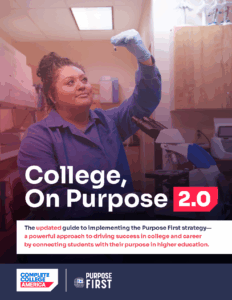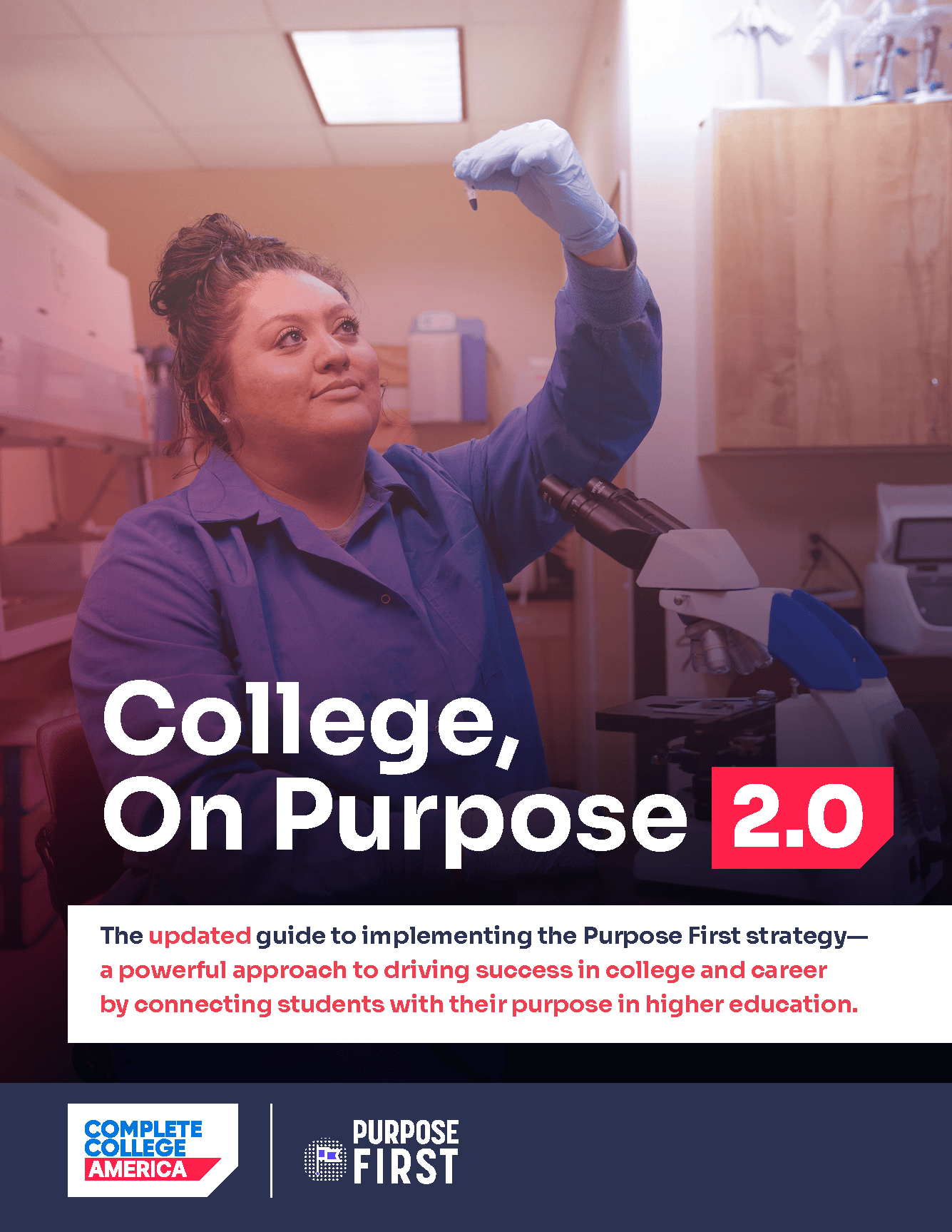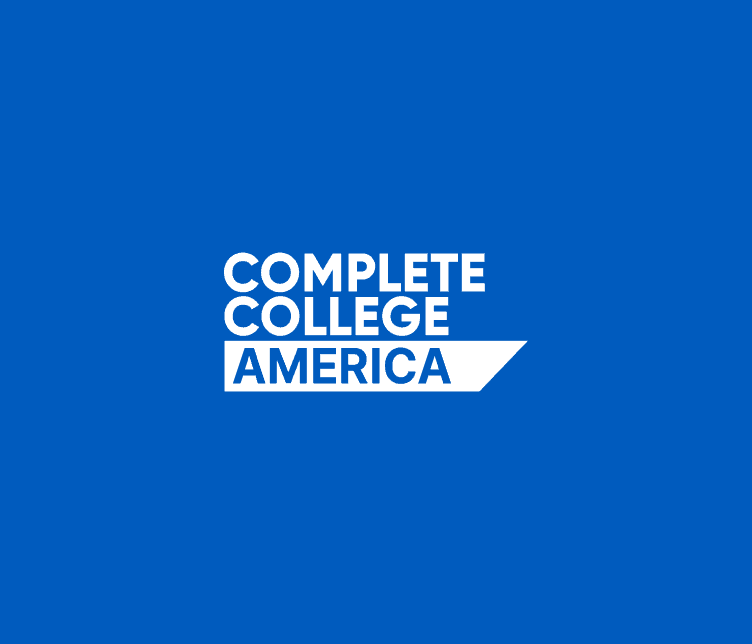
Complete College America refreshes Purpose First report with new recommendations for how colleges can connect the student experience to career and economic mobility after graduation
INDIANAPOLIS – (September 16, 2025) – Complete College America, a national nonprofit on a mission to raise postsecondary attainment in the United States, today released a new report with recommendations for how higher education leaders can embed career readiness and preparation into every step of the student journey at a time of growing skepticism about the value of a college degree. The new report—College, On Purpose 2.0—is an update of the organization’s Purpose First strategy, first released in 2019, providing fresh recommendations for how colleges can ensure that students not only complete their degrees but also graduate prepared for meaningful careers and long-term economic mobility.
“For too long, career readiness has been treated as a capstone at the end of college rather than a core part of the student experience. That shortchanges not only the workforce, but today’s students,” said Dr. Yolanda Watson Spiva, president of Complete College America. “It’s time to rethink that model. Regardless of degree program or type of institution, career preparation must be built into every stage of a learner’s journey. When purpose and career are woven into the fabric of higher education, institutions not only improve persistence and completion, but also ensure students graduate with the clarity and confidence to succeed.”
Study after study points to a widening disconnect between college and career opportunity, with life after college too often marked by missed connections between majors, jobs, and meaningful ROI. Georgetown University’s Center on Education and the Workforce reports in The Great Misalignment (2024) that nearly 28% of middle-skill credentials don’t align with any job on the market. According to Strada Education Foundation’s State Opportunity Index (2024), more than one in three associate degree holders don’t recoup their investment within ten years.
First released in 2019, the original College, On Purpose report marked a groundbreaking attempt by Complete College America to help state system leaders, policymakers, and campuses confront the growing disconnect between students’ college experience and their career aspirations. The report called on institutions to guide students in identifying their purpose earlier and with greater clarity—reducing the value gap that too often emerges between what students expect from college and the outcomes they achieve.
Since its release, the Purpose First coalition has expanded to more than 40 institutions across five Alliance states, each developing innovative approaches that span the entirety of the student journey from first point of contact during enrollment to career placement. The initiative has also attracted investment from supporters such as Gates Foundation, The Kresge Foundation, Lumina Foundation, and Carnegie Corporation of New York. Together, these efforts have become a powerful force in closing the gap between the expectations students bring to college and the realities of life after graduation.
The new report urges colleges to redefine purpose in higher education, moving beyond majors and career paths to also include students’ values, interests, financial circumstances, and roles in the community. It also recommends colleges extend this work beyond just recruitment to provide more continuous career guidance throughout their education, from enrollment to graduation, with particular attention to adults returning to school and others following nontraditional paths.
“Purpose First 2.0 represents a fundamental shift in how institutions approach career readiness—moving from reactive career services to proactive purpose development embedded throughout the student experience,” said Dr. Lakeisha Mathews, director of the Career & Internship Center at the University of Baltimore. “At UBalt, we’ve seen firsthand how integrating career exploration with academic planning from day one transforms not just individual student outcomes, but institutional culture. When students understand the ‘why’ behind their education, they become more engaged learners, make more intentional choices, and graduate better prepared for both career success and lifelong purpose.”
The Purpose First 2.0 Student Experience Guide offers a playbook for colleges looking to embed career purpose throughout the student journey. Structured around six phases, the guide lays out practical steps for institutions to connect academic pathways with labor market outcomes. It also highlights how colleges can use technology and advising systems to scale support, while adapting the approach for different learners, programs, and timelines.
“Creating stronger linkages between higher education and the labor market is the most pressing order of business for state systems today,” said Dr. Tristan Denley, deputy commissioner for academic affairs and innovation at the Louisiana Board of Regents. “In Louisiana, we’ve been building the data systems and infrastructure that connect student coursework and majors to real labor market outcomes so students can see the value of their choices earlier. By redesigning those systems, we can ensure that every student in Louisiana has a clearer path from high school and college to a meaningful career.”
Read the full report here to review the strategy and recommendations in detail.
###
About Complete College America: Complete College America (CCA) builds movements for scaled change and transforms institutions. Specifically, CCA drives systemic change that leads to better college completion rates; scalable outcomes; and greater economic and social mobility, especially for historically excluded students. CCA operates at the federal, state, and institutional levels and works with its national network of forward-thinking state and higher education leaders. Since its founding in 2009, CCA and its network have introduced bold initiatives that help states and institutions implement data-driven policies, student-centered perspectives, and success-driven practices.


